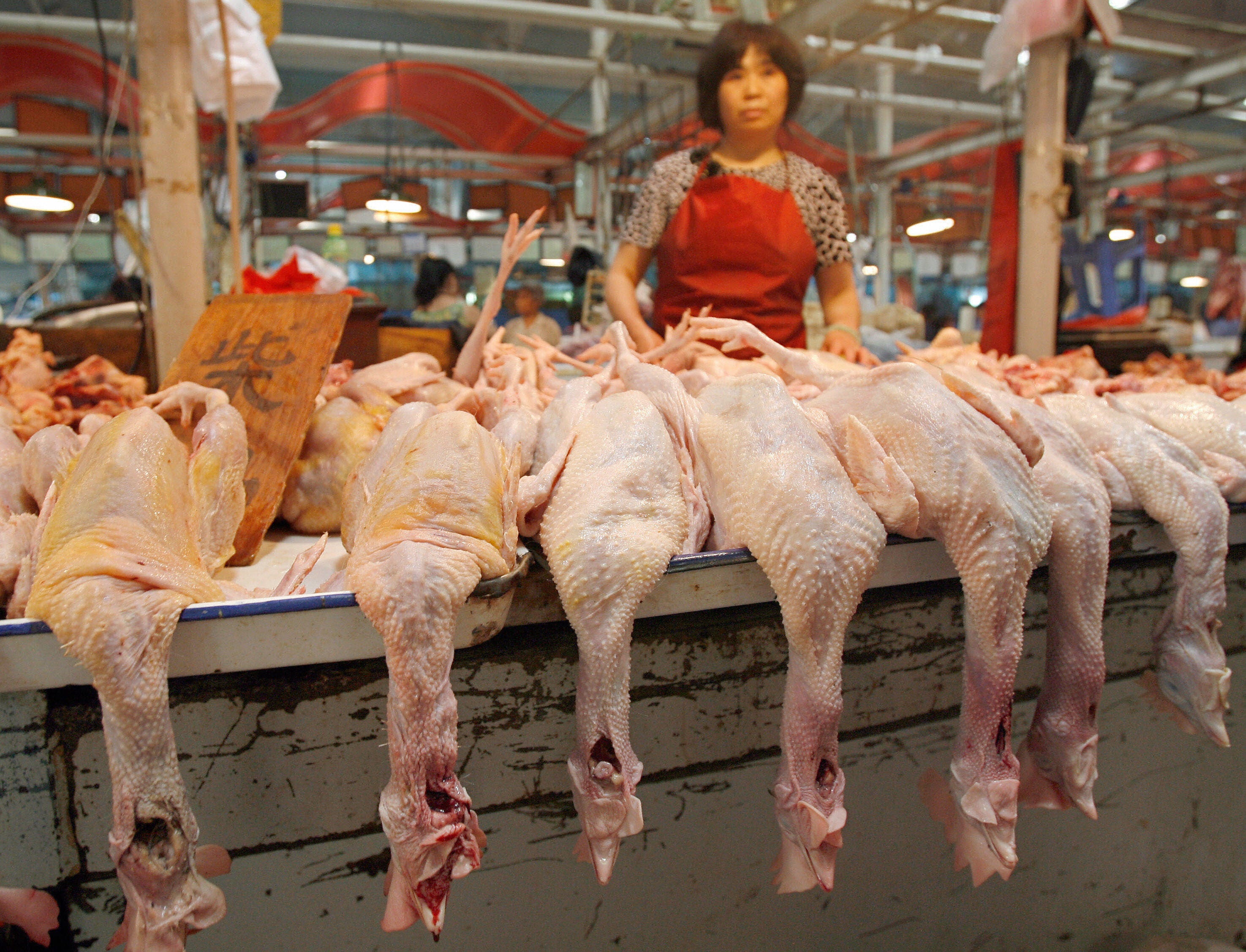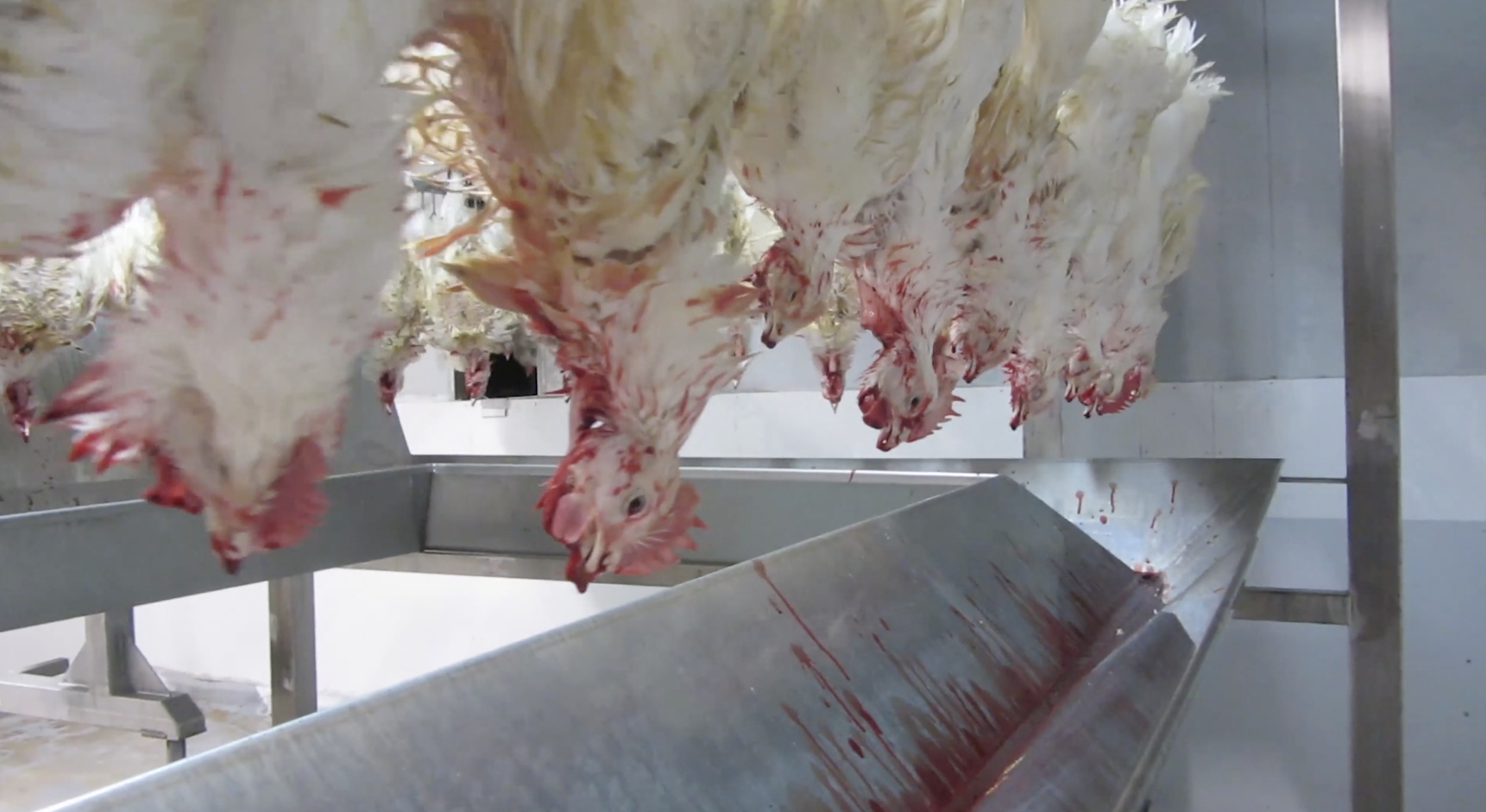News & Media > Editorials > Racism During COVID-19 and to Justify Speciesism
Racism During COVID-19 and to Justify Speciesism
COVID-19 likely originated in a wet market in Wuhan, China. As the virus has spread across the world, so too has information about this market. The market, Huanan Wholesale Seafood Market, sees vendors selling live animals, slaughtering them on site for consumption. In China there is a large wild animal trade, and animal species who are not typically considered 'food animals' in the western world are eaten by some. At the Huanan and other similar markets, animals including dogs, cats, bats, pangolins, lizards and snakes, among many others are sold and slaughtered.

The outside of the wet market in question
As (mostly white) people in western countries became increasingly aware of the realities of these markets and the animal species slaughtered there, many had a lot to say about it. Globally, people openly expressed outrage, disgust and total disdain for not only the markets, but Chinese people as a whole. Bolstered up by thoughtless and dangerous statements by news media outlets and politicians (think Donald Trump calling COVID-19 'the Chinese virus'), racially motivated violence and assault has been spewed over Asian communities worldwide. An online reporting forum received 650 reports of discrimination against Asian-Americans in one week. A 23-year-old Asian man was shouted at, “I don't want your coronavirus in my country", beaten, and left with a black eye, in the UK. When I asked someone (who is Asian) at a work meeting how they were going with everything recently, she simply said 'it's really disappointing when people reveal that they're racist".
The hatred being directed at Chinese, and Asian people more broadly, is spurred on by an uncritiqued or considered idea that because some Chinese people eat animals that we don't, and prepare, sell and buy them in a way we don't, they are more cruel and less clean. The first thing to note is that not every Chinese person eats wild animals, or dogs. Many do not. The second point to consider is that a wet market is not necessarily less hygienic or more brutal than a western abattoir, it is simply more transparent.

Freshly slaughtered chickens on display in a wet market in China - an unusual site in the west
via Business Insider
The vast majority of meat, particularly in western countries, comes from feedlots and factory-farms where animals are packed in tightly, living against their natural instinct and will, in their own filth. Maddened by their incarceration, many farmed animals are driven to cannibalism. Some literally drown in their own faeces. COVID-19 is not the first animal-origin virus to infect humans. The avian bird flu came from factory-farmed chickens, swine flu came from factory-farmed pigs, both have killed thousands of people. Both species live horrendous lives of confinement in appalling and poorly regulated systems in which they are not legally protected, and are slaughtered at a tiny fraction of their natural lifespan. Globally, we slaughter and eat 66 billion chickens and 1.5 billion pigs every year. There is no paralleled condemnation or blame placed on the people farming and eating these animals, despite the human loss having been historically and statistically far more devastating than that which we have seen thus far. The 1918 Influenza Pandemic killed a total of 50 million people, and also likely originated from farming/live markets of pigs and birds.
In Australia it is legal for newborn lambs, kids and calves to be killed by blunt force - a metal pole or hammer to the head. Hidden camera footage has shown fully conscious chickens having their heads ripped off, freshly decapitated sheep's heads being kicked like footballs, pigs being consistently and aggressively jabbed with mains powered electrical prods. Abattoirs are filled with the bodies of dead animals, carcasses ripped of their skins then, guts scooped out, split in half by what is essentially a chainsaw. These facilities are far from sterile, quiet or compassionate. Images from Chinese wet markets are certainly confronting to animal lovers, but only so much as images from any abattoir across the world should be.

Chickens who have been slaughtered in an Australian abattoir
A still from Dominion: The Documentary
This brings us to the third and most fundamental reason some western people feel justified in their racism towards Chinese people - racial discrimination justified by species-based discrimination. Believing that Chinese people are 'evil' or 'sick' for killing dogs, cats, bats, or pangolins is inconsistent if you sit down for a meal and eat cows, chickens, fish, or any other animal, and it only very thinly veils racism. In their capacity to suffer, these animals are not different. They all feel pain, they all fight to live. The fundamental difference between a dog, a bat and a chicken is our perception. They are all made of 'meat' in that they all have flesh, just as humans do, just as all animals do. What is wrong is that we are killing animals, not which animals we are killing. And if you want to get self-righteous over some Chinese people eating endangered species, let's talk about the reality of fishless oceans as soon as 2048.
Diseases transmitted from animals to humans make up 75% of all emerging infectious diseases. We may not see the state of our countries' farms, of the lives of those trapped inside, or of the facilities in which they are killed, but their reality remains the same. Mitigating pandemics is a complex matter, but one choice we ought to seriously consider is to stop eating animals. If we are to stop blindly demonising cultures different to our own, we need to look at ourselves and the inherent cruelty of our society, our dinner. Eating dogs and bats is not an unparalleled evil. Claiming that it is with our forks stuck in the breast of a chicken may be.



